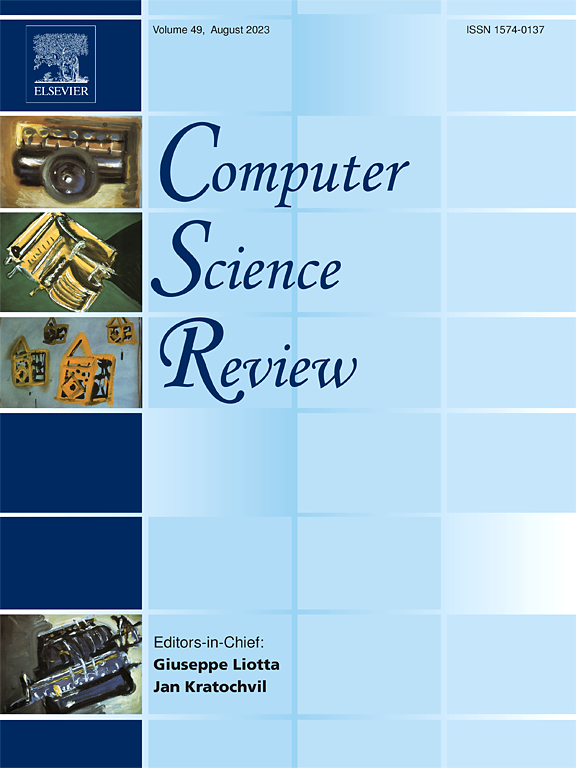Review of Distributed Quantum Computing: From single QPU to High Performance Quantum Computing
IF 12.7
1区 计算机科学
Q1 COMPUTER SCIENCE, INFORMATION SYSTEMS
引用次数: 0
Abstract
The emerging field of quantum computing has shown it might change how we process information by using the unique principles of quantum mechanics. As researchers continue to push the boundaries of quantum technologies to unprecedented levels, distributed quantum computing raises as an obvious path to explore with the aim of boosting the computational power of current quantum systems. This paper presents a comprehensive survey of the current state of the art in the distributed quantum computing field, exploring its foundational principles, landscape of achievements, challenges, and promising directions for further research. From quantum communication protocols to entanglement-based distributed algorithms, each aspect contributes to the mosaic of distributed quantum computing, making it an attractive approach to address the limitations of classical computing. Our objective is to offer a comprehensive review that serves both experts in the field and researchers or enthusiasts in quantum computing looking for a starting point to explore the area of distributed quantum computing.
分布式量子计算综述:从单个QPU到高性能量子计算
量子计算这一新兴领域表明,它可能会利用量子力学的独特原理改变我们处理信息的方式。随着研究人员不断将量子技术的界限推向前所未有的水平,分布式量子计算成为一条明显的探索之路,旨在提高当前量子系统的计算能力。本文对分布式量子计算领域的现状进行了全面的调查,探讨了其基本原理、成就、挑战和有希望的进一步研究方向。从量子通信协议到基于纠缠的分布式算法,每个方面都有助于分布式量子计算的镶嵌,使其成为解决经典计算局限性的有吸引力的方法。我们的目标是提供一份全面的评论,为该领域的专家和量子计算的研究人员或爱好者提供一个探索分布式量子计算领域的起点。
本文章由计算机程序翻译,如有差异,请以英文原文为准。
求助全文
约1分钟内获得全文
求助全文
来源期刊

Computer Science Review
Computer Science-General Computer Science
CiteScore
32.70
自引率
0.00%
发文量
26
审稿时长
51 days
期刊介绍:
Computer Science Review, a publication dedicated to research surveys and expository overviews of open problems in computer science, targets a broad audience within the field seeking comprehensive insights into the latest developments. The journal welcomes articles from various fields as long as their content impacts the advancement of computer science. In particular, articles that review the application of well-known Computer Science methods to other areas are in scope only if these articles advance the fundamental understanding of those methods.
 求助内容:
求助内容: 应助结果提醒方式:
应助结果提醒方式:


